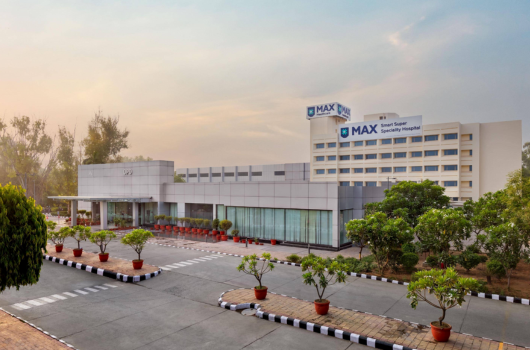
Throat cancer treatment involves using surgery, radiation, chemotherapy, or a combination of methods to remove or control cancer cells in the throat. The aim is to stop the cancer from spreading, reduce symptoms, and help the patient live a more comfortable life.
A throat tumour means an unusual growth in the throat. It can be benign (not cancerous) or malignant (cancerous). Throat cancer usually refers to malignant tumours that grow quickly and may spread to nearby areas like the voice box or neck.
Many people call it throat cancer treatment or simply cancer treatment for the throat.
The treatment of throat cancer can be effective, especially when started early. It helps control the disease, improves daily comfort, and extends life. Even in advanced stages, treatment can ease pain, make swallowing easier, and improve breathing.
Doctors choose a treatment plan based on:
Getting the right treatment at the right time can make a big difference in the patient’s recovery and comfort. Consult a doctor for medical support.
Throat cancer treatment is needed to stop the cancer from spreading, ease symptoms, and help the patient live better. If left untreated, it can make eating, breathing, and speaking painful or difficult. With proper treatment, many people feel relief and live longer.
Causes of Throat Cancer
These are the most common causes of throat cancer:
Early symptoms of throat cancer are often confused with a common cold, sore throat, or a voice problem. Because of this, many people delay going to the doctor.
Here are the key throat cancer symptoms to watch for:
Doctors recommend throat cancer treatment when:
Finding throat cancer early and starting treatment quickly can lead to better results. If you or someone close to you shows any of these signs, Bangla Health Connect can help you reach trusted cancer doctors at leading hospitals across the world.
.png)
Through Bangla Health Connect, Bangladeshi patients can access leading hospitals across India, Thailand, and other countries that are internationally recognised for excellence in throat cancer care. Many families travel abroad for treatment because of the expert oncologists, advanced technology, and comprehensive rehabilitation support offered by these hospitals.
Here’s why Bangladeshi patients choose throat cancer treatment with Bangla Health Connect:
Bangla Health Connect provides Bangladeshi patients with a trusted pathway to accurate diagnosis, advanced therapies, and world-class recovery support for throat cancer.
Bangla Health Connect connects patients with leading hospitals worldwide. These centres are recognised for their excellence in diagnosing and treating throat cancer, offering advanced surgical, radiation, and medical therapies, along with specialised rehabilitation support designed for international patients.


.jpg)


.png)







These hospitals follow international cancer treatment guidelines and provide full support for Bangladeshi patients through Bangla Health Connect.
The average cost of throat cancer treatment in India ranges from $1,900 to $7,700, while in Thailand it is from $2,800 to $7,300. The final cost may vary based on multiple factors such as the treatment method, hospital location, and stage of cancer. Before viewing the detailed table of treatment-wise costs, it's helpful to understand what influences these expenses most.
Note: India is well known for offering cost-effective advanced cancer treatment. Hospitals combine affordability with strong clinical outcomes, supported by skilled oncologists and the widespread availability of generic medicines.
Note: Thailand’s hospitals are often promoted as premium destinations for international patients. Their higher costs reflect the use of advanced imported medicines, luxury infrastructure, and all-inclusive patient care packages.
The costs listed are approximate and may vary based on hospital, location, and patient needs. Consult the healthcare provider for accurate and updated information.
The currency conversion rates in the table above are based on data from November 2025.
For more help on cost estimates and personalised guidance, contact Bangla Health Connect.
Success rates for throat cancer treatment depend greatly on how early the disease is diagnosed and treated.
Success in throat cancer treatment does not always mean a complete cure. It can include:
Leading hospitals focus on accurate diagnosis, advanced therapies, and holistic patient care for individuals with throat cancer. Their approach includes:
This combination of precise diagnostics, expert therapies, and patient-centred supportive care helps treat throat cancer effectively, reduce complications, and restore long-term health for patients.

Dr C. Rayappa, Senior Consultant - Head & Neck Oncology and Skull Base Surgery, Apollo Cancer Centre, Chennai, states that Apollo has been a pioneer in launching the Head and Neck and Skull-based surgery department at Apollo Cancer Centre, Chennai. He pointed out that in the last 25 years, Apollo has grown a comprehensive head, neck, and skull-based programme that delivers both open and endoscopic surgeries. He adds by saying that Apollo prioritises minimally invasive techniques in the form of endoscopes, lasers, and robotic technology to improve the quality of life of the patients without compromising the cancer care.

Dr. S. Kannan, Consultant, Head and Neck Oncosurgeon at Apollo Proton Cancer Centre, Chennai, explains that knowledge about the thyroid is really important since it is needed for growth, childbirth, and our day-to-day functions, and any surgery in the thyroid will affect these. He states that thyroid cancer is one of the common types of cancer that affects women in the reproductive age group of about 15 to 55 years and often presents as neck nodules. While most nodules are non-cancerous, proper diagnosis using ultrasound and FNAC is key. Surgery is the main treatment, often followed by radioactive iodine therapy. With early detection, cure rates exceed 95%. Preserving vital nerves and glands ensures better recovery and quality of life after surgery.
Bangla Health Connect makes it easier for patients and families to access advanced treatment abroad by connecting them with leading oncologists and cancer centres. From explaining available treatment options to arranging pre-treatment consultations and second opinions, we ensure patients feel confident and well-prepared before starting their care journey.
Choosing Bangla Health Connect means better care, faster access, and full support. Reach out to Bangla Health Connect to start your treatment journey with peace of mind.
Note: Bangla Health Connect does not provide medical advice of any kind.
✅ Share Your Reports - Bangla Health Connect connects you with trusted hospitals worldwide.
✅ Get treatment plans from leading Hospitals worldwide
✅ Choose the one that fits you
✅ Let us handle the rest
Early signs may look like a common cold or sore throat. Key symptoms include a long-lasting sore throat, voice change, pain while swallowing, and a lump in the neck. If symptoms last more than two weeks, see a doctor.
Bangla Health Connect reviews your medical reports and suggests the best hospital and doctor based on your condition.
We help with pre-travel doctor consultations, visa paperwork, flight planning, cost details, and free airport pickup. Our Bengali-speaking coordinators stay with you through every step.
Yes. Bangladeshi patients need a medical visa. Bangla Health Connect helps you get the doctor’s letter and other documents needed for fast visa approval.
Yes. You can bring one or two family members. They should apply for a medical attendant visa along with your application.
It depends on the treatment plan. Most patients stay between 2 and 6 weeks for surgery, therapy, or follow-up care.
Some treatments, like surgery or radiation, may cause temporary pain or side effects, but doctors give medicines to help manage them. You will be supported throughout the process. A qualified professional will guide you the best.
Throat cancer is usually treated by ENT specialists, head and neck oncologists, and radiation or medical oncologists, depending on the case.

